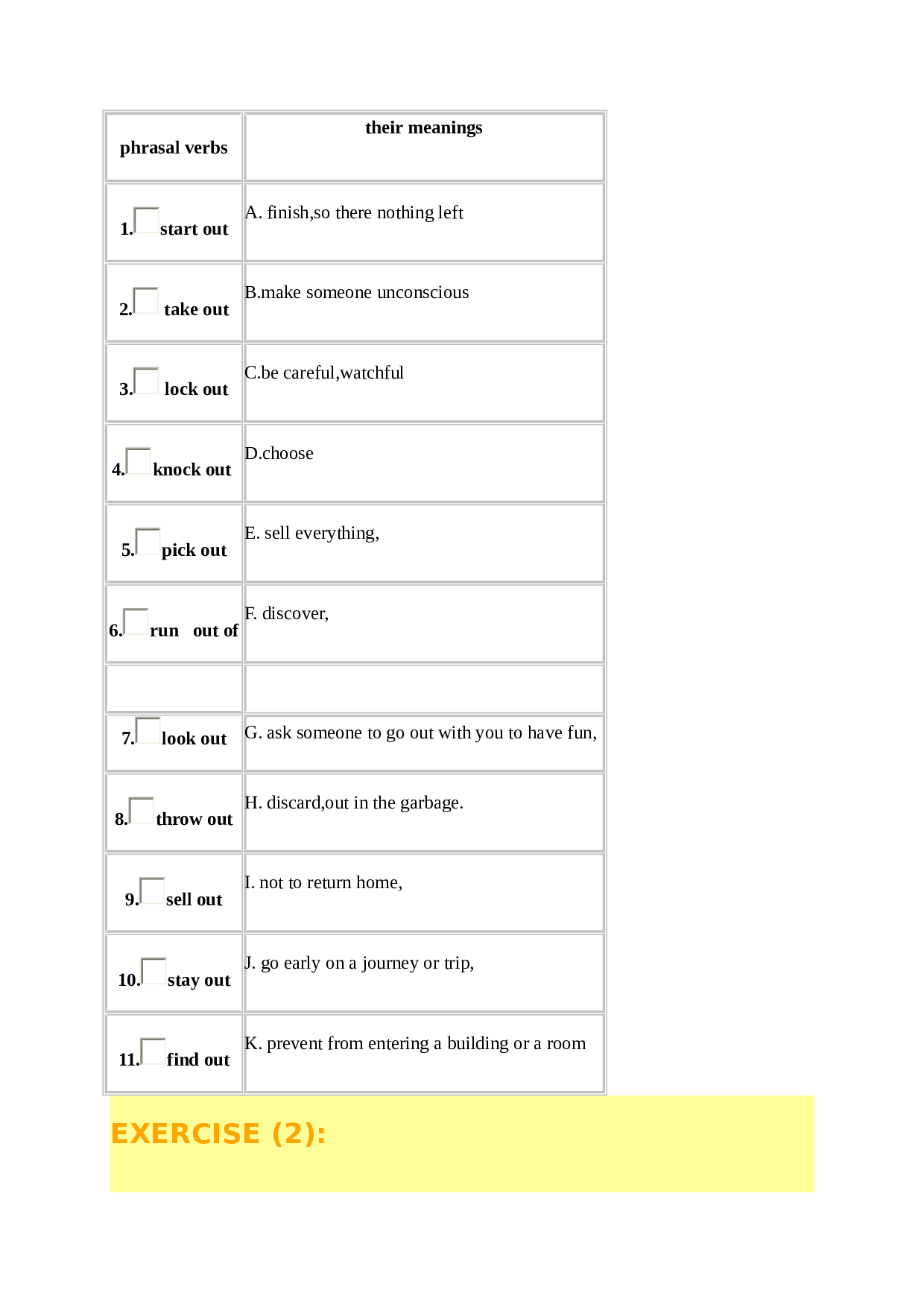Phrasal Verbs And Their Meaning
The definition of a phrasal verb is a phrase, which is made up of a verb and either a preposition and/or an adverb. An adverb is used to describe a verb. A preposition relates to a noun and often precedes the noun in the sentence. Words include the following: on, by, above, next to, below, beside. A verb is an action (doing) word and refers to something that is taking place or has taken place. Examples of verbs include running, cooking, eating and dancing.


For clarification, a noun refers for example to a person, an item or a place. There are many Phrasal Verbs in the English language. Try learning a few every week.
Here are some useful phrasal verbs in English: Phrasal Verb: Account for Meaning: Clarify Example: Please account for the time you spent doing this research. Phrasal Verb: Apply for Meaning: To approach/ask for Example: The child applied for a scholarship at her new school.
Phrasal Verbs Exercises
. The Use of Idioms and Phrasal Verbs The Use of Idioms and Phrasal Verbs What are idioms and phrasal verbs? Idioms and phrasal verbs are parts of English grammar which have specific and unique use within sentences and typically contribute to building sentence structure and hence meaning to the whole phrase. Therefore, it is essential that you understand the use of phrasal verbs and idioms within a sentence, the appropriate instances when they are to be used and the exact place in the sentence where they are to be included in a sentence. Idioms and phrasal verbs when used appropriately go a long way in improving the sentence structure and making your write up interesting. What is an idiom?
An idiom is a combination or group of words put together to give a figurative meaning (has a hidden meaning) that is distinctly different from the constituent words that make up the idiom. Idioms, in some cases, may also be used to refer to certain words or phrases used by a group of people with similar characteristics such as people speaking the same dialect, people in the same occupational field among others. This may at times create a communication barrier, especially where you come across a new phrasal verb and do not understand the context in which the idiom was used. It is therefore vital for a writer using any dialect related idiom to try and expound on it and any reader to always be cautious about idioms he or she has not come across and try to understand some of the culture and dialect of the people and not just assuming the meaning of the idiom used. It is also important to note that most phrasal verbs also form idioms since they have a figurative language. Definition of phrasal verbs A phrasal verb is a phrase formed from a combination of a verb and an adjective, preposition or both either before or after the verb that results in an idiomatic phrase.
The phrasal verbs typically give a different meaning from the specific words combined to form it. As mentioned earlier, the combination of a preposition and a verb leads to a prepositional idiom. Besides, some phrasal verbs are formed with a verb and two prepositions for example; look forward to where look is the verb, forward is the first preposition and to is the second preposition. Phrasal verbs can be either transitive (verbs that take a direct object) or intransitive (verbs that cannot take the direct object). Some transitive verbs can be separated, that is, the verb and adverb or preposition making the phrasal verbs are not written on after the other in a sentence but rather separated by a direct object. The noun does not come between the noun and the preposition, but a pronoun will come in between the verb and preposition. For example;.

The committee agreed to take on James. The committee agreed to take him on. Intransitive phrasal verbs, on the other hand, never take on direct objects and hence cannot be separated. For example;.
The community is slowly getting over the situation. The watchman came across a deserted house near the premises. Moreover, there are also phrasal nouns which are formed by making a noun from a verb and particle complex. For example;. Standby: every institution should employ the use of a standby generator to provide electricity during power outages and electrical malfunctions. It is prudent to note that: Some phrasal verbs may have more than one meaning, and hence one has to understand the different meanings and how to incorporate them in a sentence correctly to bring out the intended meaning.
For example; Check in – The students checked into the hotel at precisely 9 o’clock. (here it is used to mean making reservations at a place). Parents have to check in on their children’s activities regularly. (here it means to monitor or see how someone is doing or fairing on). Grow up – The student confidently said that he wants to be a neurosurgeon when she grows up. (used to mean to become older).